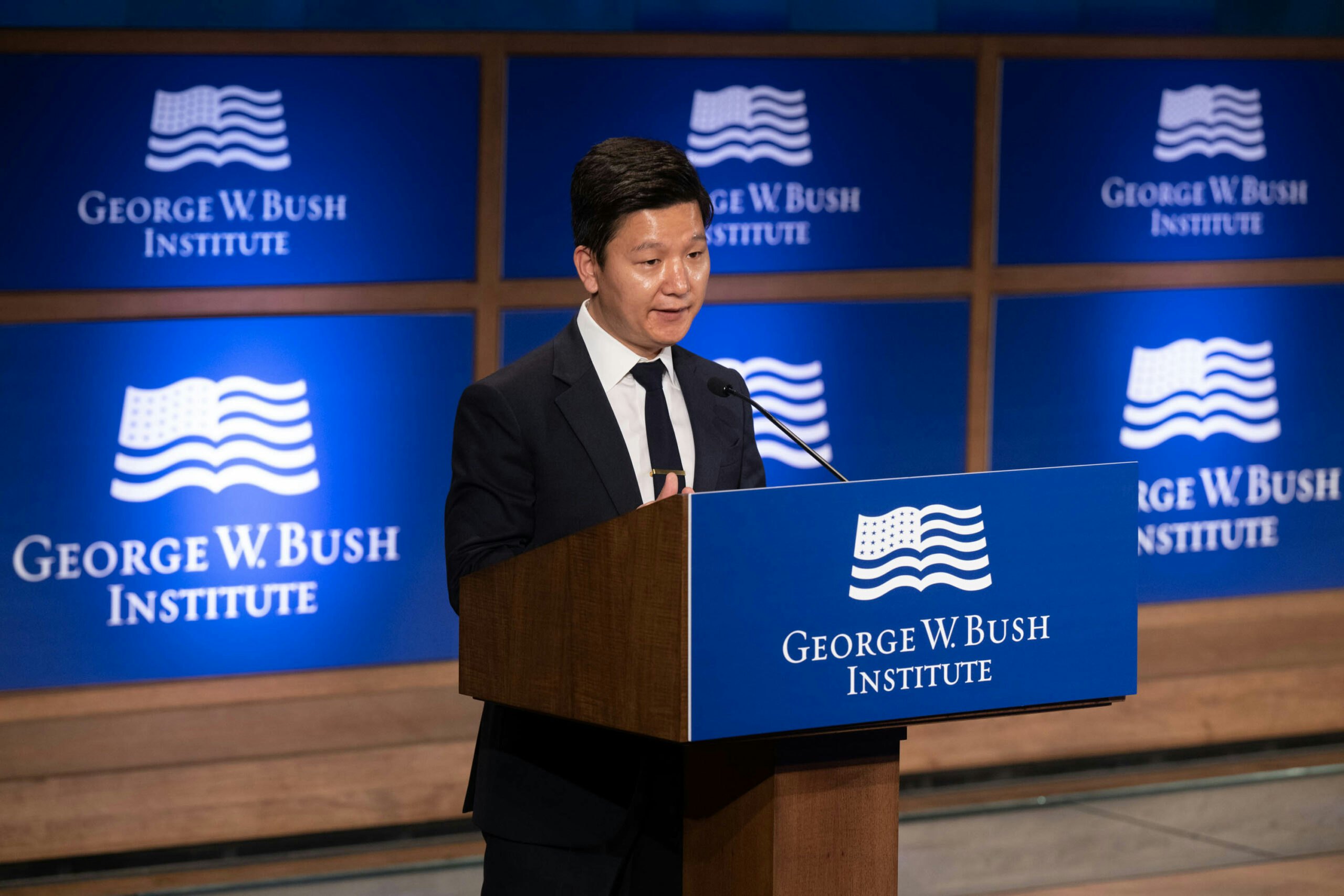I was born and raised in North Korea. There is no freedom of speech, movement, or religion. Access to information outside the regime is severely restricted, and there is no internet or use of cell phones.
When I was 12 years old, my father died of starvation. I became a homeless orphan and survived by begging for food on the streets and working in a coal mine. There were times I went days without eating.
Two decades later, I am in America, where I can choose if I want to practice a religion. I can visit friends in other towns or states without the government’s permission to travel. I have internet access, which allows me to look up my childhood home in North Korea using Google Maps satellite images.
Today, I face the opposite problem regarding food: I have too much access to it — more food than I can consume. Unlike in North Korea, where I used to sleep under bridges or abandoned trains, I now live in modern graduate housing with a beautiful view of the Charles River in Cambridge.
Given my experiences, some might assume that I am happy and content with life. But the truth is that humans are incredibly adaptive and often forgetful. I, too, find myself complaining when my Amazon delivery arrives later than expected. It is natural to forget what we have and take the freedom this nation offers for granted. It is easy to complain, and that is part of being human. Life is hard everywhere, with varying degrees of difficulties, whether in North Korea, America, or elsewhere.
What helps me restore a positive mindset and gratitude is the simple reminder that, like many things in life, gratitude is also a choice. We can choose to focus on what we have or what we don’t have. Only when we recognize that the freedom we have in America is rare and precious in many places do we truly appreciate what a gift it is.
I recognize how polarized and divisive our nation has become. While it’s easy to feel discouraged in this climate, we must remember that there is still hope despite our strong divisions. We can find this hope by viewing our differences and diversity as strengths rather than weaknesses. This requires active listening and a genuine effort to understand others’ perspectives. The golden rule of “treating others as you would like to be treated” is important but may not be sufficient at times. We should also consider the practice of “treating others as they would like to be treated.” This approach involves understanding others’ preferences and necessitates open communication.
As we celebrate Thanksgiving in the U.S., let us reflect on the words of Jim Kwik: “If an egg is broken by an outside force, life ends. If it is broken by an inside force, life begins.” This reminds me, and I hope you, to choose gratitude rather than contempt for others. Let’s take this holiday as an opportunity to be grateful for the freedoms available to us here in the U.S. and create an inside force in our nation – a force to break barriers and create a healthy culture of respecting others and acknowledging our differences through dialogue and civility.






























